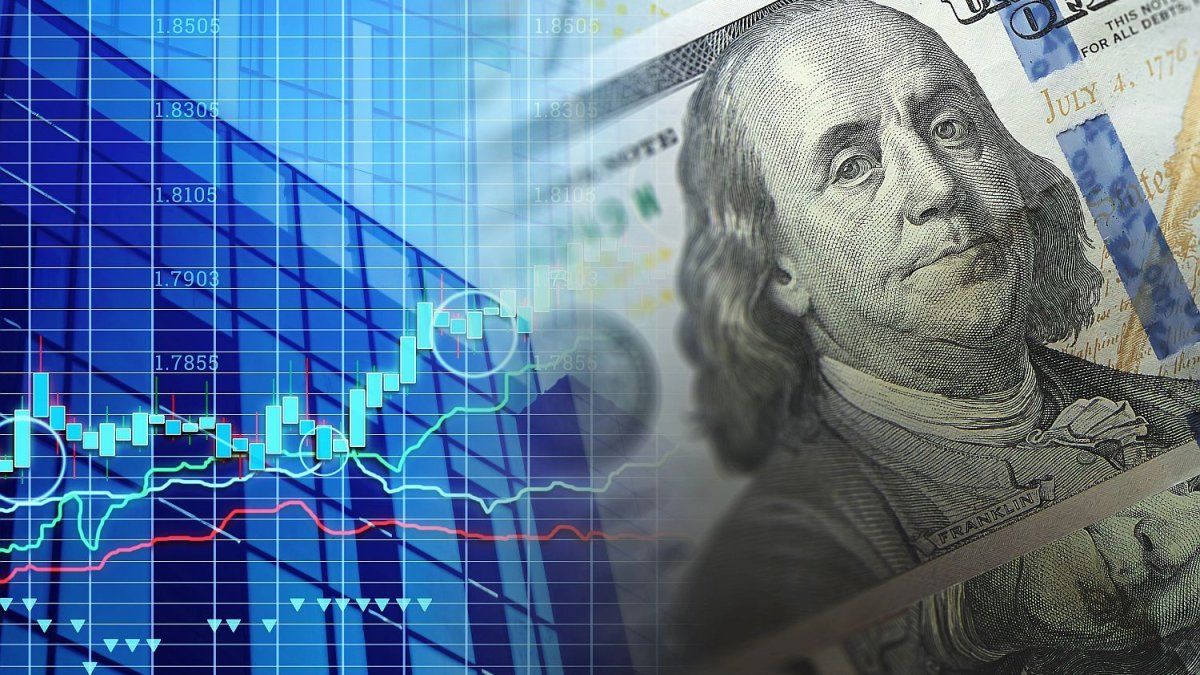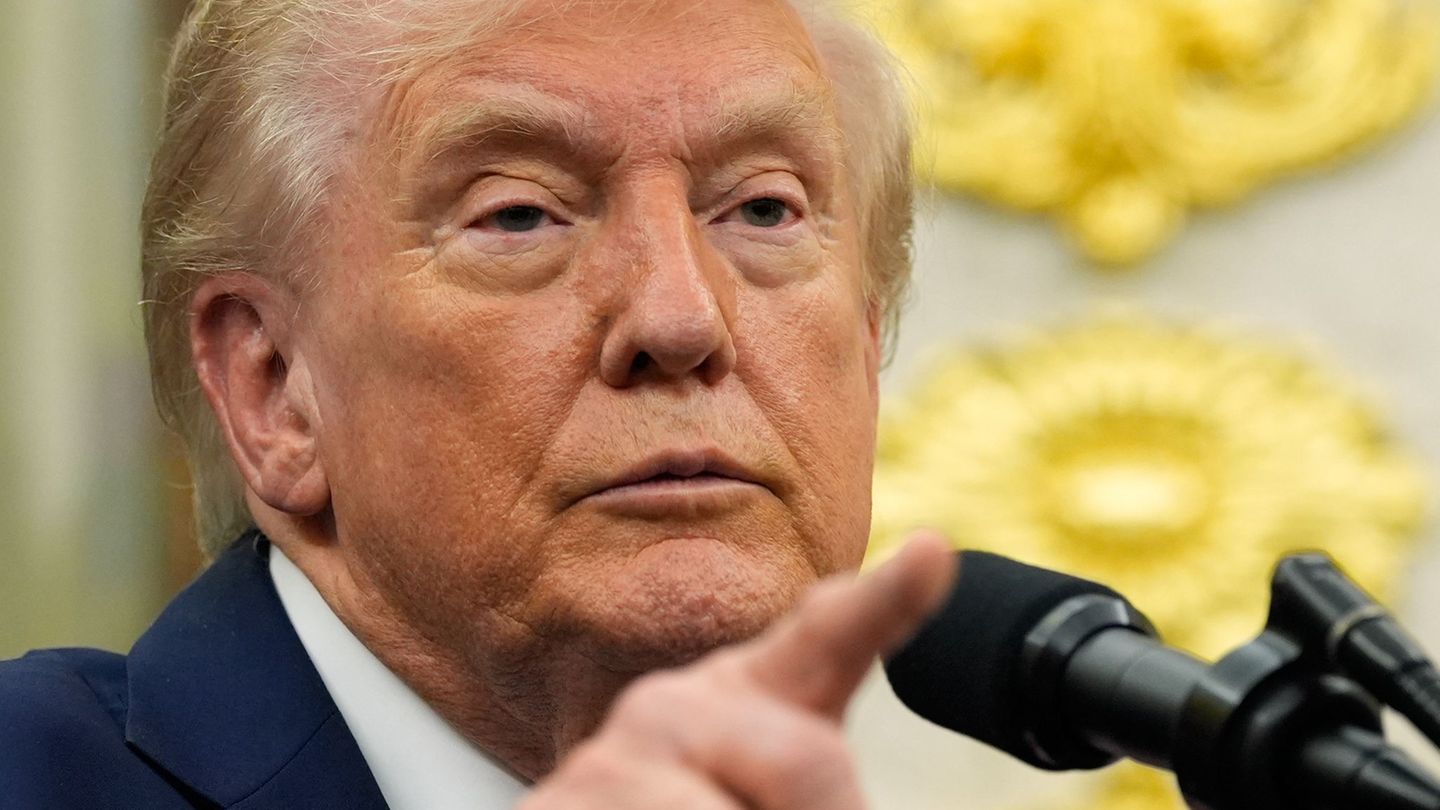Apparently the feeling of the main funds they invest worldwide continues intact and at maximum since February of this year, according to the last poll.
Despite the geopolitical climate, the sparks of the tariff war, the onslaught of Donald Trump against the Fed, the warnings about possible bubbles, and other yellow lights, the great global investment managers not only maintain the optimism on the market but also recognize being “very invested” and with a low level of liquidity. This is reflected in the last poll “Global Fund Manager Survey” (GFMS) of the Bank of America (Bofa) It emphasizes that it is the most bullish since last February where only 5% sees sudden landing (the lowest level since last January), and with cash minimal levels of 3.9%. In addition, most managers have a long position in the “7 magnificent”, while 52% do not see an artificial intelligence bubble (AI) and 55% say that AI is already promoting productivity. On the other hand, only 9% of investors have exposure to cryptocurrencies while 48% of investors have exposure to gold. We must also highlight the result of the survey the fact that the assignment of shares is increasing, but not to extreme levels.
The content you want to access is exclusive to subscribers.
What else does August GFMS say in general?
- On the macro and politics, the most likely result for the global economy in the next twelve months is a soft landing for 68%, while 22% predict that there will be no landing and only 5% is positioned for a hard landing.
- Global growth expectations remain warm; The optimism about the cuts of fees is the highest since December 2024; When asked if the next Fed will resort to quantitative flexibility (qe)/control curve to relieve the charge of US debt, 54% said yes, 36% not; It is also expected that the final US tariff rate with the rest of the world will be 15% compared to 14% in July.
- On risk factors, 29% pointed out the risk of commercial war/recession in decrease, 27% the risks of inflation/without fed cuts, 20% disorderly bond yields, 14% the bubble of the increase. Although most of the funds operate “in the long term in Magnificent 7”, 52% do not see an AI bubble (41% yes) while 55% say that AI is already promoting productivity.
- Over-positioning in global actions is the highest since February 2025. A 91% record says that US actions are overvalued. The rotation to public services, energy and finance from medical care shows the level of over-positioning since February 2018. On the other hand, 33% want to increase coverage against the weakness of the dollar (there was a maximum of 40% in May).
- On cryptocurrencies and gold, only 9% of investors have exposure to cryptocurrencies (with an average allocation of 3.2%) adjusting 75% without cryptocurrencies, the total exposure of the GFMS portfolio to cryptocurrencies is 0.3%; while 48% of investors have exposure to gold (with an average allocation of 4.1%); Adjusting 41% without gold, the total exposure of the Gold FMS portfolio is 2.2%.


What other data deserve to stand out and expand?
- The feeling of investors rises to its maximum in six months according to growth expectations, cash and assignment levels. The average effective level remains stable at 3.9% (the “sale” signal was activated in July when cash fell from 4.2% to 3.9%).
- The assignment of shares is increasing, but has not yet reached its extremes. The allocation to global shares increased for the fourth consecutive month to reaching 14% net (compared to 4% net in July), the highest allocation of shares since February 2025. However, the allocation of shares is below the average of 24 years of 25% net and the recent maximum of December 2024 of 49% net.
- Investors increased their allocation to emerging markets, global actions and public services, and a lower allocation to health care, to the actions of the Eurozone and the real estate sector. In August, investors are mostly over-operated in emerging markets, the eurozone and banks, compared to the most under-dollar in dollars, real estate and discretionary consumption. In relation to history, investors have a position over-put in public services, bonds and the euro and have an insufficient weighting in dollars, real estate and medical care.
- The appetite for risk, measured by US actions, continues to exceed global growth expectations. While the feeling about China’s growth expectations rose to 11% net waiting for a stronger economy (compared to only 2% in July), the highest level since March 2025.
- Most see growing expectations of greater inflation and lower short -term rates. Inflation expectations increased to a maximum of three months in August, and 18% net of investors expected a higher global CPI (compared to 6% net in July). While the expectations of lower -term interest rates also increased to the highest level since December 2024, with the net net who expects short -term interest rates to be lower within 12 months (compared to 76% in July).
- On who they think he will be nominated to be the new president of the Federal Reserve: 20% of respondents expect Christopher Waller to be the candidate (compared to 14% in July), 19% say Kevin Hassett (compared to 7%), 15% says Kevin Warsh (compared to 17%) and 13% says Scott Besent (compared to 26%).
- The busiest business was to be long in the magnificent 7 according to 45% of investors (the last time it was the busiest operation was in March) while the second most repeated operation was the short position in dollars according to 23% of investors, falling from the number 1 position in July.
- For 91% of investors US shares are overvalued (vs. 87% in July) while 49% consider that emerging markets are the region in which shares are more undervalued (the highest figure since February 2024).
- When asked about the assignment of cryptocurrencies, 82% of investors said they had not begun to assign them structurally (9% claimed to have done so). The average allocation weighted to cryptocurrencies is 0.3% (3.2% among investors who do).
- When asked about the allocation of gold, 41% of investors said that their current gold position is approaching 0%. The average allocation weighted to gold is only 2.2% (4.1% among investors that have a gold assignment). For 11% net investors, gold is overvalued, below 26% net overvalued in July.
- How investors would describe the world economy for the next 12 months: 70% say they expect “stagflation” (growth below the trend and inflation above the trend), without changes compared to July; 7% talk about “boom” (growth above the trend and inflation above the trend), less than 10% of July; 12% talk about “stagnation” (growth below the trend and inflation below the trend), compared to 10% in July; And 7% say “gold rich” (growth above the trend and inflation below the trend), without changes against July.
Source: Ambito




